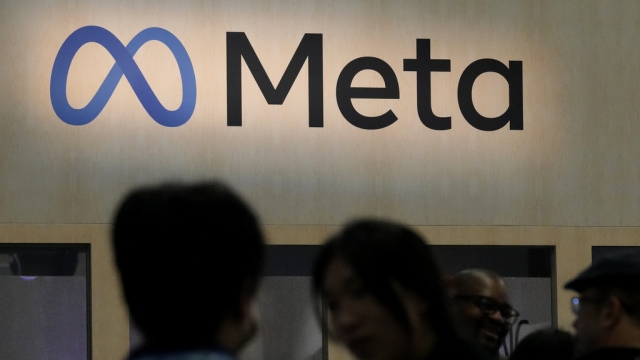The state of New Mexico is suing Meta, its platforms and CEO Mark Zuckerberg for allegedly allowing its sites to become "a marketplace for predators in search of children upon whom to prey."
The lawsuit filed Tuesday by the state's attorney general, Raul Torrez, accuses Instagram and Facebook of becoming a "breeding ground" for predators using the sites to sex-traffic, groom and solicit sexual images from minors.
The suit also claims Meta uses certain algorithms to keep young users on the app and others to push explicit content to children, fostering the "twin dangers" of sexual exploitation and mental health harm done to children on its platforms.
"Meta's business model of profit over child safety and business practices of misrepresenting the amount of dangerous material and conduct to which its platforms expose children violates New Mexico law," the lawsuit states. "Meta should be held accountable for the harms it has inflicted on New Mexico's children and be required to make its platforms as safe for children as the law requires."
SEE MORE: Dozens of states sue Meta for 'addictive features' targeting kids
Torrez had his office test Meta's child safety standards by setting up fake accounts on its platforms. They claim this practice showed proof of the dangerous material recommended for young users and the ease with which adults can find, message and groom minors.
In one case, Torrez's office made a Facebook account as a 13-year-old girl, which quickly gained the maximum number of 5,000 friends — most of whom were male users between the ages of 18 and 40.
The lawsuit states the fake profile's messages became filled with pictures and videos of pornographic content, but Meta denied reports that the messages violated their community standards.
"Meta's conduct has turned New Mexico children who are on its platforms into victims. Meta's motive for doing so is profit," the lawsuit states. "This action seeks to make social media safer for New Mexico's children by holding Meta accountable for conduct that violates the New Mexico Unfair Practices Act and creates a public nuisance."
In a statement, a Meta spokesperson said, "We want teens to have safe, age-appropriate experiences online, and we have over 30 tools to support them and their parents. We've spent a decade working on these issues and hiring people who have dedicated their careers to keeping young people safe and supported online."
Meta also shared Friday that it was developing further technology and strategies to root out predators in light of other "recent allegations about the effectiveness" of their child safety policies.
Those allegations include a series of investigations by The Wall Street Journal that found the company was struggling to remove pedophiles from its platforms, as well as a lawsuit filed by 33 states in October that alleged Meta targeted young users with addictive features. A company whistleblower told a Senate subcommittee last month that Meta's top executives knew the damage these features did to minor users, but they ignored the warnings.
Meta has strongly denied claims that it intentionally puts kids on its platforms at risk, saying its child safety experts and new tools "create clear, age-appropriate standards" for users.
Trending stories at Scrippsnews.com



